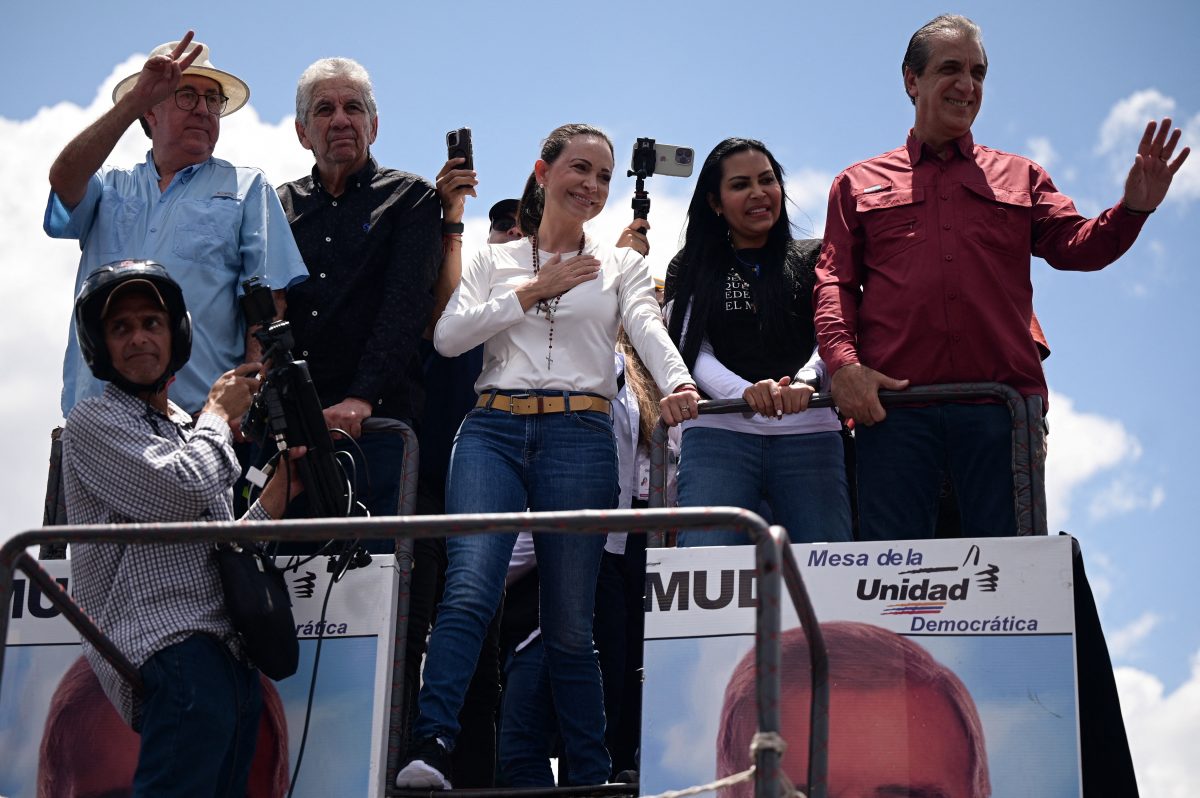CARACAS, (Reuters) – Peaceful street protests and international pressure still have the potential to unseat Venezuelan President Nicolas Maduro, opposition leader Maria Corina Machado said today, as an election dispute reached the one-month mark and the opposition’s pathways to claim power seemed narrow.
The disagreement over the July 28 contest has sparked international cries for the release of full vote tallies, deadly protests and moves by the country’s prosecutor to investigate the opposition and arrest journalists.
Machado said in an interview with Reuters that the opposition has a “robust strategy” to claim victory. She would give no details but added that she and former opposition candidate Edmundo Gonzalez are united.
“It is the coordination between internal and external forces which will achieve change,” Machado, who has appeared at marches but otherwise been in hiding since the vote, said via video call. “What does Maduro have left today? A very reduced group of high-ranking soldiers, the control of magistrates from the (top court) and arms…he is sowing fear.”
Venezuela’s national electoral authority and its top court named Maduro the election’s victor, saying he won just over half of votes in the election.
But tallies from about 80% of ballot boxes posted on an opposition website show a resounding victory for Gonzalez, giving him 67% support.
Some Western countries, nearly all democracies in the Americas and international bodies such as a United Nations panel of experts have called for the release of full vote tallies, with some alleging outright fraud by the ruling party.
The electoral council has not yet posted detailed tallies, saying a cyberattack on election day affected its systems.
Asked if Maduro, who has said Machado and Gonzalez should be jailed for stoking violence at protests, could remain in power on the back of military control, Machado said “no, absolutely not.”
Machado’s comments came the same day that Gonzalez is expected to ignore – for a second time – a summons to appear at the attorney general’s office to testify about the opposition website.
Gonzalez, a 74-year-old former diplomat, ignored his first summons on Monday and an arrest warrant could be issued for him if he ignores a third.
Venezuelans are feeling rage and pain over repression and the country’s profound economic woes, Machado said.
Asked if those feelings could lead to violent protests, Machado said she is confident Venezuelans understand how “to manage our power.”
“There is a robust strategy that we are advancing simultaneously on many fronts: national public opinion, keeping our people focused on the goal,” she said. “We should not underestimate people … People are informed, aligned, protecting each other, denouncing the abuses of the regime.”
Protests since the vote have led to at least 27 deaths and 2,400 arrests, and both the opposition and the ruling party have asked supporters to demonstrate on Wednesday, the one-month anniversary of the vote.
Ruling party officials have accused the opposition of promoting violence and Attorney General Tarek Saab launched criminal probes into opposition leader Machado, Gonzalez and the website this month.
Detentions of opposition figures and protesters have continued in the weeks since, as the ruling party-controlled national assembly passed a law tightening rules on non-governmental organizations, and unions denounced alleged forced resignations of state employees espousing pro-opposition views.






